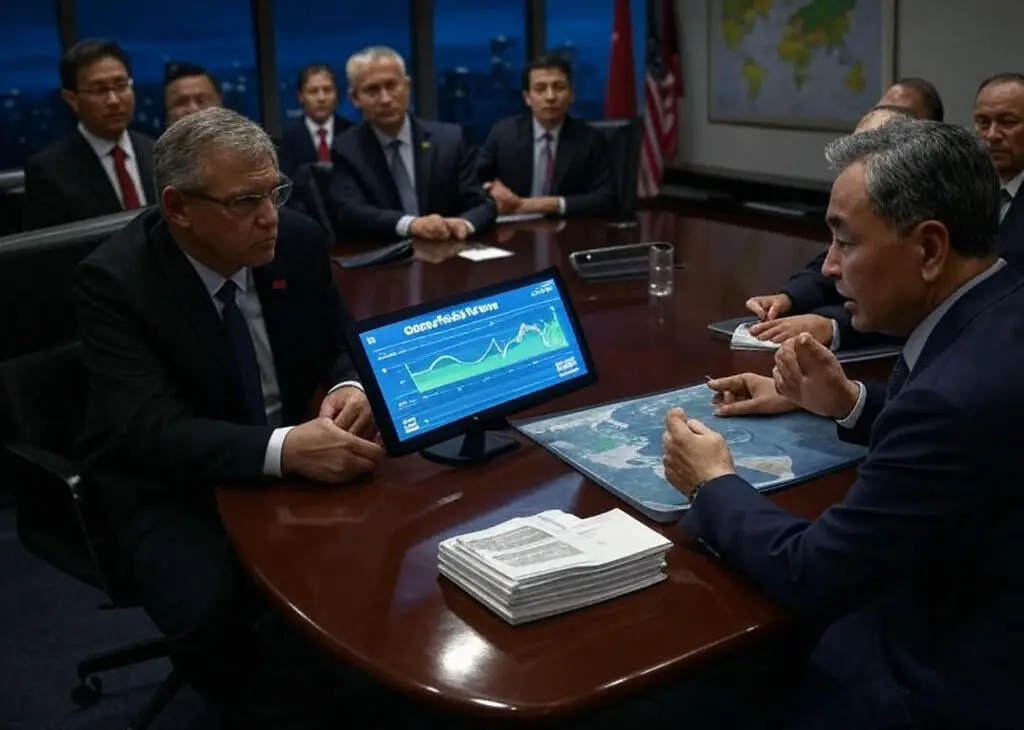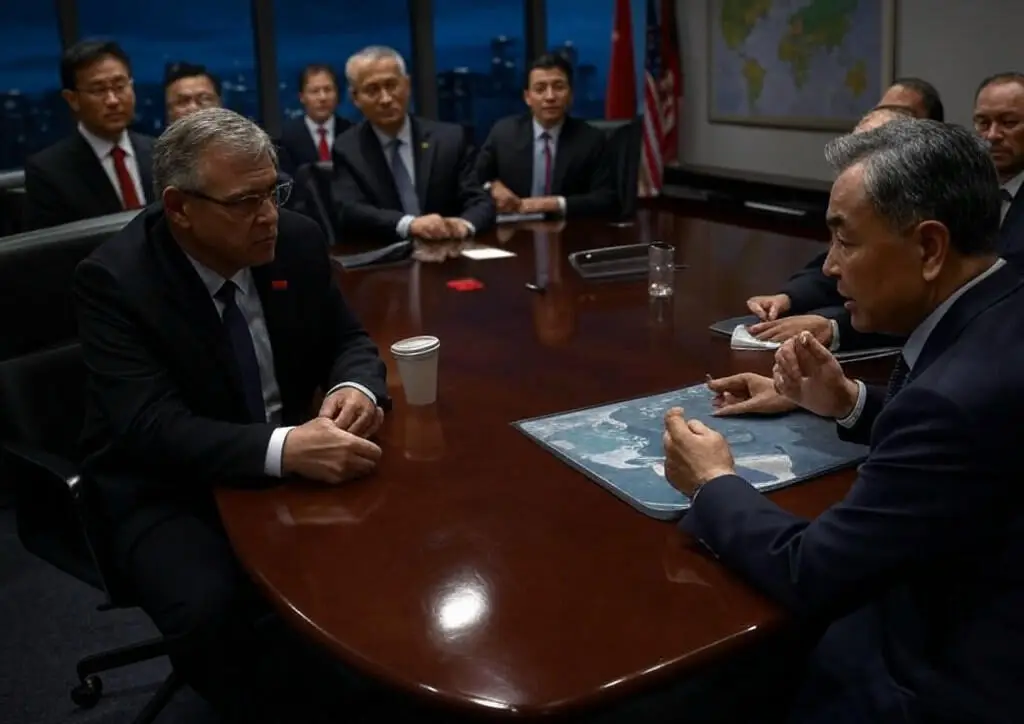
China’s Commerce Ministry delivered a direct message when on April 21, 2025, it urged countries to rethink their ambition to sign expansive commercial agreements with the United States which could be a threat to Chinese economic interests. This address clearly reveals the escalation of differences in international trade with China striving to maintain its status in the global economy vis-à-vis the changed nature of relations and strategic rivalries.
China’s Underlying Concerns

The distrust of the influence of the U.S.-brokered trade contracts upon the source of China’s fear lies at the root of China’s caution. The ministry reassured that any pact that worked against the Chinese would immediately be met with a tit for tat move, which is a statement of their no-nonsense protection of trade frontiers. This circumstance would be of special importance at a time when the U.S. is following up such initiatives as the Indo-Pacific Economic Framework (IPEF) and trade dialogues with one-on-one talks just to contain China’s economic influence, especially in areas wherein Beijing’s presence has been undeniably strengthened through initiatives like the Belt and Road Initiative.
A Wider Geopolitical Landscape
The caution of China comes while the U.S.-China competition is heating up with trade as a major point of contention. The means to date such as tariffs, export controls, and technology restrictions were the tools that have marked the struggle between two economic powers. China aims to ensure its position in the world’s trading circles by encouraging other countries to stay relatively independent of the U.S. through their economic policies. For nations in areas like Southeast Asia and Europe, this leaves them a dilemma of a twofold nature: on the one hand, they can obtain economic benefits from relationships with the US, while on the other hand, avoiding China’s potential backlash.
The Ministry’s use of “reciprocal measures” implies that China has plenty of options before it, such as implementing tariffs or/and limiting exports of such resources as rare earth elements and semiconductors. The latter actions, in turn, not only may disrupt global supply chains but also threaten industries involved in electronics and automotive manufacturing.
Consequences for International Trade

China’s warning is a thought-provoking moment of reflection for the future of global commerce. Will the other countries take heed of Beijing’s stance and do their best to avoid U.S. trade deals or will they eventually become closer to Washington, at the risk of causing economic fragmentation? These choices will determine the fate of globalization as it is already in difficult times surrounded by the rise of protectionism and the existence of regional trade blocs.
For corporations, the unpredictability poses the need for their strategic flexibility. The companies that operate abroad will be exposed to the extreme supply chain risks or the strict Chinese measures if their countries of operation think similarly to the United States in trade policies. Therefore, searching new markets and diversifying their supply chains are crucial for them to pass through the challenges productively.
The Road Ahead
The statement from China is a clear persuasion that global trade is, in fact, highly interdependent with geopolitics. In the meantime, the U.S. and China are contesting each other for global dominance, it is crucial for countries and businesses to be cautious in these more divided times. The Commerce Ministry’s announcement is far beyond a defensive action as it also unveils China’s work on gaining up its economic power for the global trade rules.
The US, its partners, and China are playing a key role in this game, and their actions will reveal whether trade will be a promoter of global cooperation or, on the contrary, a source of global disunity. Up until now, the global economy is beleaguered, facing a serious problem of which the next steps are going to be significant.






or2juz